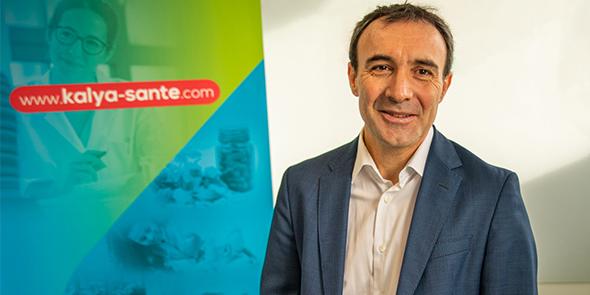By akademiotoelektronik, 21/12/2022
Kalya puts AI at the service of practitioners on non-drug therapies
The planets are aligning. Among patients and physicians alike, interest in non-drug therapies is growing. And the technology developed by the Hérault startup Kalya (Saint-Clément-de-Rivière, near Montpellier), which is now accessible to practitioners, is timely.
Non-drug therapies, which can be psychological, physical, nutritional or digital, complement drug and/or surgical treatments, with the aim of improving the quality of life and well-being of patients.
Scientific stamp
This tool? A first digital platform called Kalya Research and launched almost two years ago (in June 2020), whose objective is to analyze the global scientific literature on non-drug therapies to assess their benefits and risks, and provide researchers with actionable scientific information on this subject. A way of bringing a kind of scientific stamp to these care techniques based on scientific evidence, which can prove to be valuable complements to conventional medicine, with measurable benefits for specific pathologies.
Kalya Research was, according to Jean-Marc Durand, the first brick of this technological tool whose algorithm, boosted with artificial intelligence, collects, selects and analyzes the millions of worldwide scientific studies published in the field of non-drug therapies and for various health problems (to date, about thirty analyzed by Kalya).
The "Vidal of non-drug therapies"

But this platform is also intended to be a decision-making tool for practitioners. This is the 2nd step that the startup had inscribed on its trajectory, and which it is taking today by officially launching Kalya Pro.
With Kalya Pro, Kalya targets all practitioners but especially those most interested in non-drug therapies, and therefore in the solution, namely general practitioners, naturopaths and pharmacists.
Also tested in the United States
Kalya Pro has officially launched in France, but its ambitions are international, and Kalya will also be testing a version in the United States from its office in Seattle. The business model is based on a subscription principle, as for Kalya Research, at a price of 12 euros per month for the first year (24 euros thereafter).
For the time being, the startup, which employs twelve people, has not reached its level of profitability and continues to advance thanks to fundraising to support its R&D, carried out with business-angels.
Jean-Marc Durand confirms that he is working on the 3rd brick of the project, the one that would make a platform accessible to the general public: "It cannot be the same tool as for practitioners, so it will need to be adapted, a reflection is in progress”.
Cécile Chaigneau4 mins
Share:
Related Articles